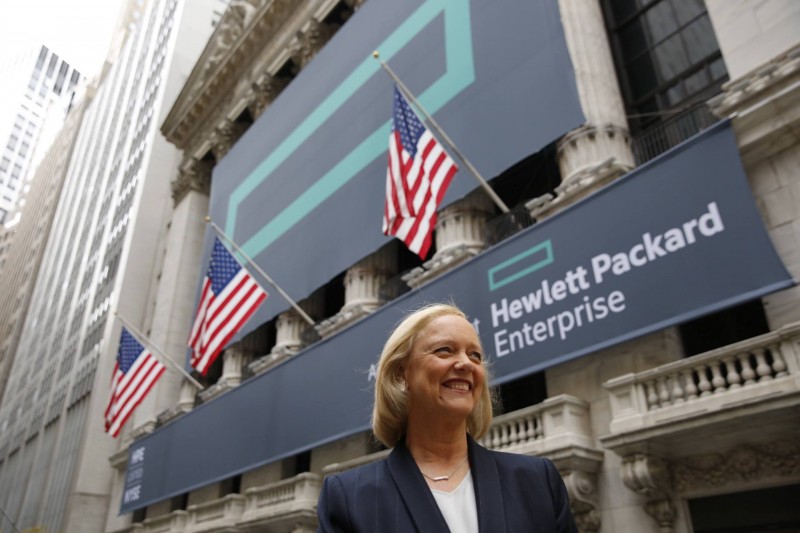 NEWS
NEWS
 NEWS
NEWS
 NEWS
NEWS
Hewlett Packard Enterprise Co. (HPE) is said to be the subject of multiple acquisition talks. According to two separate reports quoting unnamed sources, HPE is the subject of a proposed takeover by several private equity groups, and is also considering the sale of some of its software assets, including Autonomy and Vertica.
If either report comes true, it would be a continuation of a significant restructuring that began when the original Hewlett-Packard Co. began when it decided to split itself into two entities – HPE and HP Inc., which is focused on selling PCs and printers.
Following that split, HPE later spun out its IT services arm and sold off the majority of its stake in an Indian subsidiary, while laying off dozens of staff to boot.
HPE declined to comment on the latest reports.
The most likely of the reports comes from Reuters, which says unnamed parties are interested in buying some of HPE’s software businesses for around $6 billion to $8 billion. Reuters says talks were in the preliminary stages early last month (as SiliconANGLE also reported), and revolve around HPE’s Autonomy, Vertica and Mercury businesses. Autonomy is the most eye-catching of these, having been acquired by HP in a hugely controversial $11 billion deal back in 2011. That acquisition, which was overseen by ex-CEO Leo Apotheker as he looked to shift the company’s focus from hardware to software, was followed by years of lawsuits and counter-suits by HP and Autonomy’s former executives over the company’s accounting practices prior to the deal. HP was later forced to pay $8.8 billion in charges due to the irregularities with Autonomy’s accounts before the acquisition.
Another report suggests that several private equity firms, including KRR, Apollo Global Management and the Carlyle Group, are looking to pay $40 billion or more to buy HPE outright. The Information cites an unnamed source “who has had talks with representatives of the firm” in its story, and says the buyout would enable HPE to continue with its restructuring away from the prying eyes and pressure of Wall Street analysts.
If the private equity firm buyout does happen, it would put HPE in a similar position to where rival firm Dell Inc. is now. Back in 2013, Dell CEO Michael Dell partnered with Silver Lake Partners to buy the company he founded for $25 billion and take it private. Dell the man returned to Dell the company in 2007, and has overseen its transition from a PC maker into an all-round enterprise IT solutions and services provider on the same level as IBM, Cisco Systems Inc. and HPE. At the time of the deal, Dell argued that going private would make it easier for him to complete the transition, as he wouldn’t be under pressure from impatient investors to deliver strong growth and profits each quarter. Now the company has gone private, it’s able to plan for its long-term future without worrying about a losing cash in the short term.
HPE faces many of the same challenges as Dell, in that it’s trying to reinvent itself amid a rapidly changing business IT environment in which more enterprises are looking to run workloads in the cloud, rather than in traditional on-premises IT. In addition, most hyperscale public cloud providers are buying low-cost, white-box servers and systems to build out their data centers, instead of higher-end gear from companies like HPE.
But besides the prospect of HPE also going private, the two firms have responded very differently to the challenges they face. While HPE went for a more slim-line approach with its split from HP Inc., Dell did just the opposite and will soon grow into a much larger beast once it completes its $67 billion acquisition of EMC Corp.
Part of the reasoning is that Dell officials believe the PC remains a critical aspect of its IT enterprise business, whereas HPE believes it’s clearly not a necessary ingredient for enterprise success.
THANK YOU